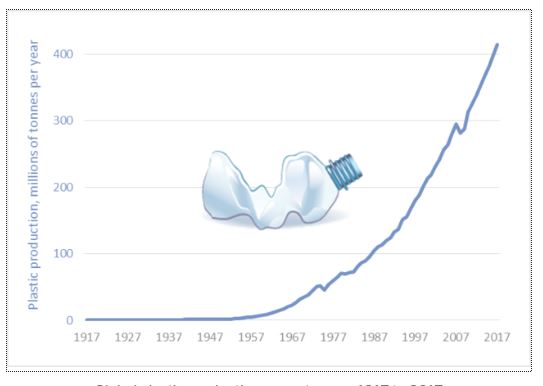
Amsterdam, 8 January 2017 – Humans produce more and more trash and that trend is set to continue for decades. According to an article published in Nature in 2013, this is explained by two dominant factors: population growth and rising wealth. Mega cities in countries south of the Sahara in particular produce ever more trash. This is due to continue for a whole century, since the peak is not expected to be reached until after 2100.
Meanwhile the global chemical industry is investing billions of dollars in new production facilities to manufacture plastic, according to a recent report. The proportion of plastic in trash will therefore rise, partly because it is increasingly replacing traditional materials, such as metals and paper. The collection and processing of trash in developing countries is poorly organised. Most trash is dumped in expanding landfill sites. Leakage into the environment is huge. The plastic breaks up into tiny pieces, but it never breaks down. If this continues, there will be more plastic in the sea than fish by 2050. And that is… long before we reach Peak Plastic, the point in time when the quantity of plastic trash in the world reaches its highest point.
Apparently not a single scientist has made an estimate of Peak Plastic. Whether the peak will be reached before or after the year 2100, does not really matter. Peak Plastic basically demonstrates that all the well-meaning initiatives to combat plastic soup will hardly make any difference on a worldwide scale, as long as its use is not drastically reduced.
Click here to see the graph on the world’s production of plastic. The world’s plastic production is set to quadrupal by 2050. The question is how much will peak production be, before it starts falling?






